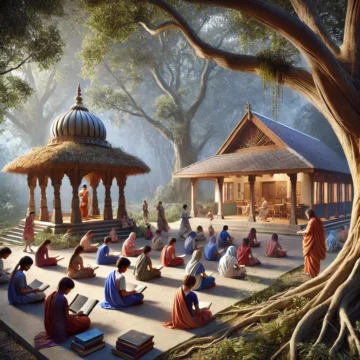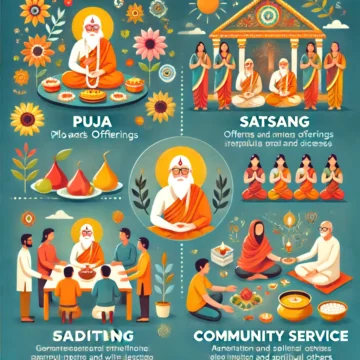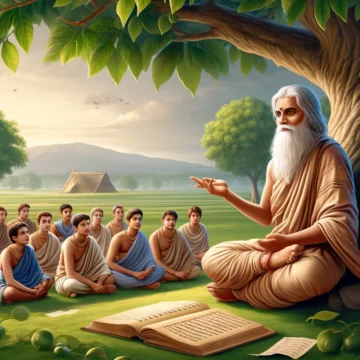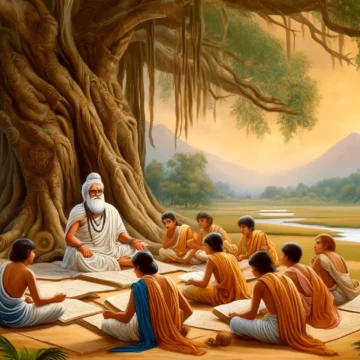Explore how faith and education systems in Hindu and Abrahamic traditions shape individual behaviors and societal norms. From the ancient Gurukul system to modern Madrasas, we delve into the deep-rooted impacts of these educational frameworks on personal integrity, community responsibility, and global societal interactions
Tag: Gurukul System
Teaching and Learning Methods in Modern Contexts
Explore the integration of traditional and Western teaching and learning methods in modern contexts. This series examines how age-old frameworks like the Gurukul and Madrasa systems adapt to today's global educational landscape, influencing contemporary practices and preparing learners for global challenges. Discover the dynamic evolution of educational systems from their ancient roots to modern applications.
Teaching and Learning Methods: Integrating Time-Honored Education Systems
Explore the dynamic integration of traditional and Western teaching and learning methods in modern contexts. This series delves into how age-old educational frameworks like the Gurukul and Madrasa are evolving within today's global educational landscape, influencing contemporary practices and preparing learners for global challenges.
Guru Purnima: Celebrating the Revered Teacher-Student Tradition
Explore the rich traditions of Guru Purnima, a festival honoring the sacred Guru Shishya Parampara through rituals like Puja, Satsang, and Meditation. This day marks a pivotal moment for introspection and renewal, celebrating the enduring wisdom of Gurus across generations.
Guru Shishya Parampara: Preserving the Sacred Relationship
The Guru Shishya Parampara, a sacred teacher-student tradition, has preserved Hindu knowledge for over 4000 years. Despite historical setbacks like the burning of Nalanda University, this tradition ensured the continuity of wisdom through oral teachings. Today, it remains a cornerstone of Hindu education, blending ancient practices with modern needs.
Gurukul Education System: A Journey Through Time
The Gurukul Education System, deeply rooted in Hindu culture, has profoundly shaped the intellectual and spiritual landscape of India from the Vedic period to the present day. Gurukuls, traditional residential schools, offered more than just academic knowledge; they were centers of holistic learning where students received physical training, moral discipline, and spiritual enlightenment under the close guidance of a Guru. This system promoted an egalitarian approach to education, where learning was accessible to all based on merit rather than social standing, exemplified by the legendary camaraderie and schooling of Lord Krishna and Sudama. The curriculum was comprehensive, incorporating Vedic studies, mathematics, astronomy, philosophy, and the arts, ensuring a well-rounded development of students. Despite the shifts brought about by colonial influences, the legacy of Gurukul education continues to resonate in modern educational practices, emphasizing the importance of holistic development and moral values.







